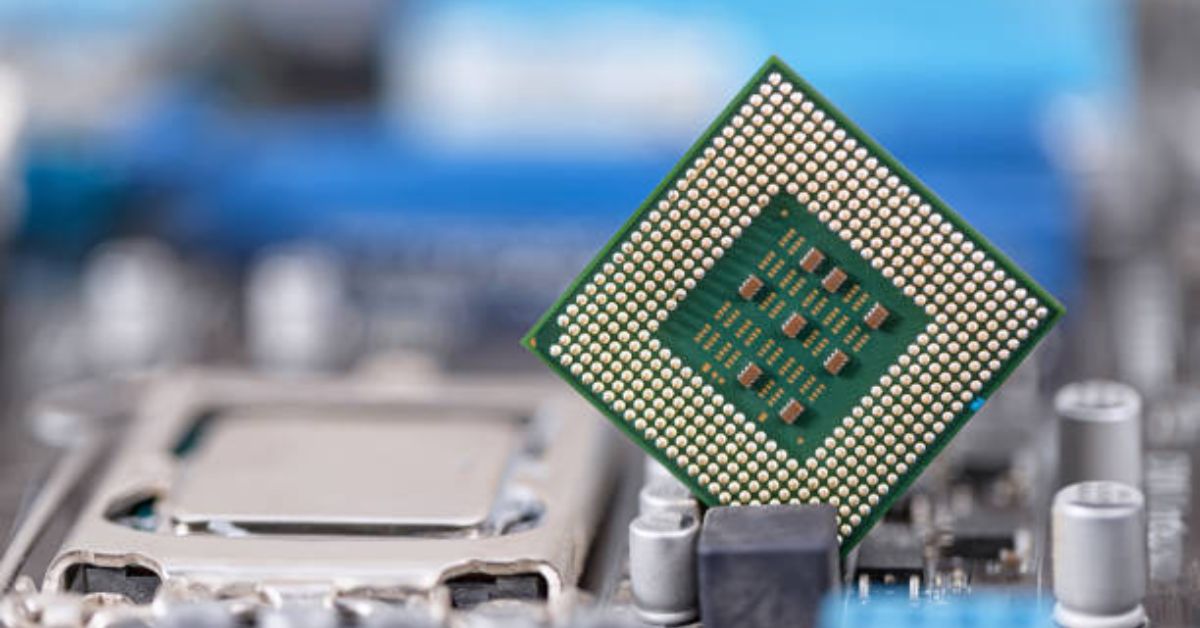Building Smart Solutions with Embedded Linux
Embedded Linux has become a cornerstone in the world of smart solutions, powering everything from consumer electronics to industrial automation. With advancements in embedded software development services, organisations are leveraging Embedded Linux development services to create systems that are efficient, secure, and capable of handling complex tasks. This explores how Embedded Linux contributes to building smarter, more capable devices, and why it stands out in the realm of embedded software development.
Introduction to Embedded Linux in Smart Solutions
Embedded Linux is a tailored version of the Linux operating system, optimised to meet the constraints of embedded systems such as limited processing power, memory, and energy consumption. This versatility has made it the preferred platform for embedded software development services. From enhancing consumer gadgets to driving automation in industries, Embedded Linux provides a robust framework for developing efficient, flexible, and cost-effective solutions.
Embedded Linux is widely used in smart solutions for various applications, like IoT (Internet of Things) devices, wearables, and automotive systems. These devices need lightweight operating systems that can respond quickly and reliably, and Embedded Linux is a good fit for these needs.
Key Advantages of Embedded Linux for Smart Solutions
1. Open-Source and Flexible
One of the most attractive features of Embedded Linux is that it is open-source. This means developers can modify the operating system to fit specific application needs. The open-source foundation provides access to a wealth of resources, libraries, and tools that simplify development and maintenance. This flexibility is particularly beneficial in embedded software development services, where customization is often necessary to achieve optimal performance.
2. Cost-Effectiveness
Embedded Linux eliminates licensing costs associated with proprietary systems, making it an affordable choice for both small and large-scale projects. This cost-effectiveness is especially relevant for startups and organizations looking to create smart devices on a budget without sacrificing quality.
3. Community Support and Continuous Improvement
The large community behind Linux development contributes to its continuous improvement, addressing security vulnerabilities, and adding features to keep the system up-to-date with industry standards. This teamwork improves the quality and reliability of Embedded Linux. It ensures that developers always have the latest tools and updates available to them.
4. Real-Time Processing Capabilities
Real-time processing is critical for many smart solutions, especially in sectors like automotive and healthcare. With the ability to handle real-time operations, Embedded Linux supports time-sensitive applications, making it ideal for systems that require immediate processing and response.
The Role of Embedded Software Development Services
Embedded software development services are instrumental in creating efficient and reliable embedded systems that meet modern demands. By offering expertise in both hardware and software, these services enable organizations to design custom solutions that integrate seamlessly with Embedded Linux. Here’s how these services contribute to building smarter systems:
Efficient Software Design and Development
Embedded software development services focus on optimizing code to work within the hardware constraints typical of embedded systems. This requires specialized knowledge of low-level programming languages like C and C++, which provide precise control over hardware resources. A good software framework allows Embedded Linux to run well on devices with limited processing power.
Enhancing Device Security
Security is paramount in any smart solution, and embedded software development services play a vital role in strengthening the security of embedded Linux-based systems. By implementing security protocols, encryption techniques, and secure boot processes, developers can create systems that protect sensitive data and maintain integrity even in high-risk environments.
Integration of IoT and Embedded Linux
The Internet of Things (IoT) has become synonymous with smart solutions, and embedded software development services are at the forefront of integrating IoT capabilities with Embedded Linux. Through IoT, Embedded Linux devices can communicate with other devices, enabling data sharing and remote monitoring. This integration enhances device functionality, enabling real-time decision-making, predictive maintenance, and remote control.
How Embedded Linux Development Services Foster Innovation
Embedded Linux development services specialize in adapting Linux to various embedded systems, allowing organizations to bring unique products to market. Here’s how these services facilitate innovation:
Custom Kernel Development
Embedded Linux development services offer the expertise to develop custom Linux kernels tailored to the specific requirements of a project. This customization allows for the inclusion or exclusion of certain features, optimizing the operating system for performance, security, and power efficiency. For instance, in automotive applications, a custom kernel might be configured to support faster data processing and higher security.
Device Driver Integration
Embedded Linux development services play a crucial role in ensuring that all hardware components operate effectively. One key aspect of these services is device driver integration, which facilitates seamless communication between the operating system and the hardware. This integration is vital for the development of smart solutions that depend on various peripherals, including sensors, displays, and communication modules. By enabling this interaction, developers can create more efficient and reliable systems tailored to specific applications.
Cross-Platform Compatibility
One of the challenges of embedded software development is ensuring that the software is compatible across different platforms. Embedded Linux development services offer cross-platform compatibility, allowing devices to operate with a range of processors and chipsets. This versatility is crucial in industries like automotive and consumer electronics, where different hardware components must work harmoniously.
Applications of Embedded Linux in Smart Solutions
The use of Embedded Linux extends across numerous industries, including:
1. Consumer Electronics
Many consumer electronics, such as smartphones and smart home devices, use Embedded Linux. This system is reliable, efficient, and cost-effective. Products that run on Embedded Linux include smart TVs, routers, and voice assistants.
2. Automotive Industry
The automotive industry has embraced Embedded Linux for its ability to handle real-time processing and support advanced driver-assistance systems (ADAS), infotainment systems, and vehicle-to-everything (V2X) communication. Embedded Linux enables these systems to operate reliably and securely in vehicles, providing an optimal balance of performance and safety.
3. Industrial Automation
Embedded Linux is used extensively in industrial automation, where it powers control systems, robots, and machine vision systems. The reliability and security of Embedded Linux make it an ideal choice for automated systems that require precise control and continuous operation.
4. Healthcare and Medical Devices
In healthcare, Embedded Linux supports medical devices such as diagnostic imaging machines, wearable health monitors, and patient tracking systems. The real-time processing capabilities of Embedded Linux are essential in medical devices where timing and accuracy are critical.
5. IoT-Enabled Smart Cities
Embedded Linux is a key enabler of IoT in smart city infrastructure, including traffic control systems, public transportation, waste management, and environmental monitoring. These systems rely on Embedded Linux for real-time data processing, reliable connectivity, and security.
Challenges in Implementing Embedded Linux
Despite its many advantages, implementing Embedded Linux in smart solutions does come with certain challenges:
Power Consumption
While Embedded Linux is designed to be efficient, power consumption can be an issue in battery-operated devices. Optimization techniques, such as reducing the CPU clock speed and minimizing background tasks, can help manage power consumption.
Complexity of Development
Developing embedded Linux systems requires a deep understanding of both software and hardware. Embedded software development services can address this complexity by providing the expertise needed to create stable, high-performance solutions.
Compatibility and Integration
Ensuring compatibility across different hardware configurations can be challenging, especially when integrating IoT components. However, embedded Linux development services offer cross-platform support, which simplifies integration and enhances compatibility.
Future of Embedded Linux in Smart Solutions
As the demand for connected, intelligent systems continues to grow, the future of Embedded Linux in smart solutions looks promising. Advances in AI, machine learning, and IoT will continue to drive the need for powerful yet efficient embedded operating systems. Embedded Linux, supported by specialized embedded software development services, is well-positioned to meet these demands, offering a flexible and cost-effective foundation for innovation.
Emerging Trends to Watch
1. Edge Computing
Edge computing allows data processing to occur at the device level, reducing latency and improving response times. With the help of Embedded Linux, edge devices can process data locally, making real-time decision-making possible.
2. Enhanced Security Measures
Security will remain a focal point, especially as more industries adopt IoT and smart solutions. Future developments in Embedded Linux will likely include stronger security protocols to protect against cyber threats.
3. AI Integration
AI is increasingly being integrated into embedded systems, enabling features like facial recognition, natural language processing, and predictive analytics. Embedded Linux will play a key role in supporting these AI-driven capabilities.
Conclusion
Embedded Linux provides a powerful, flexible foundation for building smart solutions across a wide range of industries. Its open-source nature, cost-effectiveness, and adaptability make it an ideal choice for embedded software development services. As technology evolves, Embedded Linux, coupled with expert embedded Linux development services, will continue to drive innovation, enabling smarter, more capable systems that redefine modern industries.
Whether for consumer electronics, automotive applications, or industrial automation, Embedded Linux is setting new standards for performance, reliability, and security, making it a cornerstone of modern embedded solutions.














Post Comment